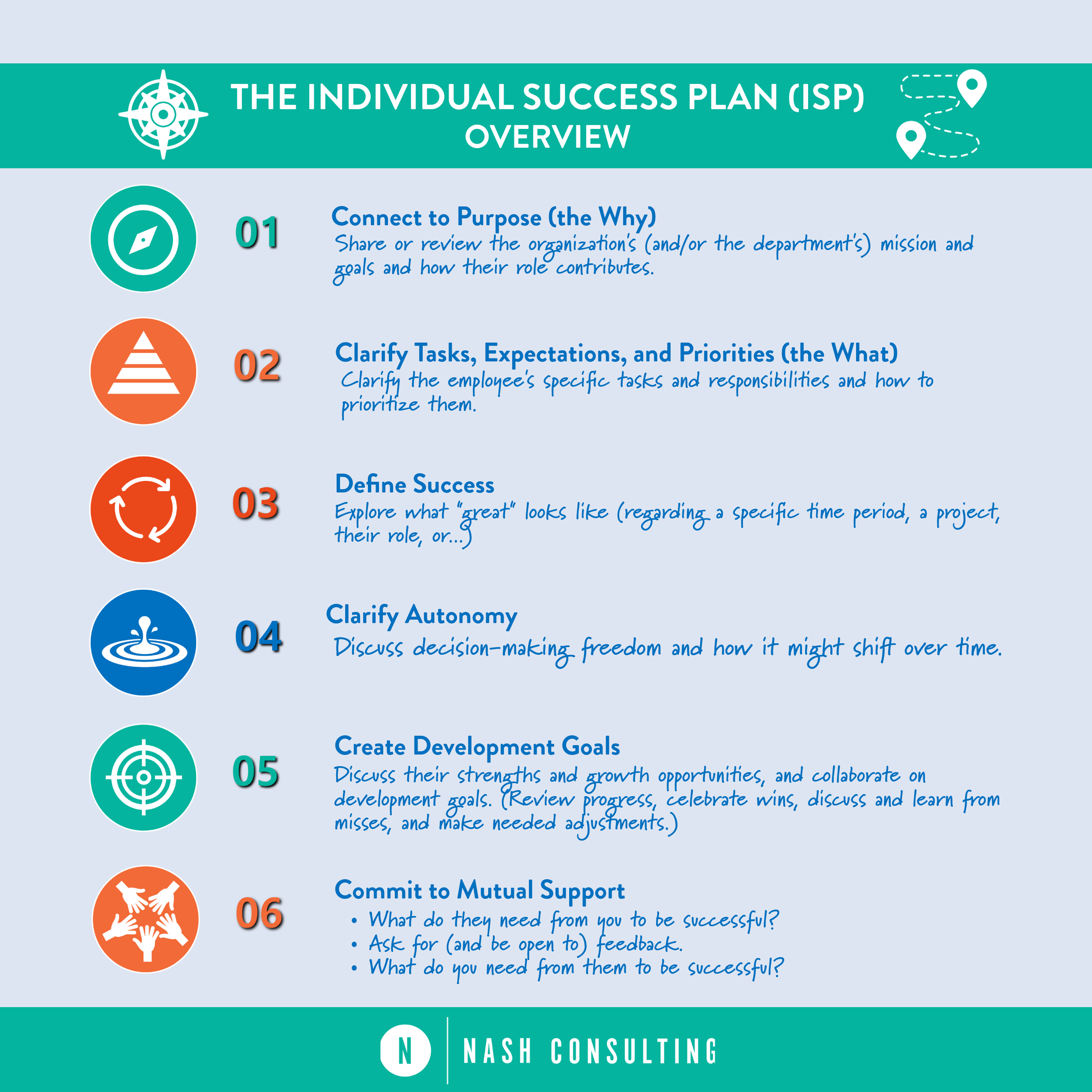
THE MANAGEMENT BLOG
Deciding vs. Influencing: The Clarity Your Team Wants (The Six Decision-Making Styles)
“The greatest problem in communication is the illusion that it has been accomplished.”– George Bernard Shaw
Your employees are usually fine with how decisions get made as long as they know what style you are using. Are they deciding or are they influencing?
The Employee-Manager Alignment Process That Works
Whether you’re a new manager or a seasoned leader, this article gives you everything you need to roll out ISPs with confidence: a clear overview of the process, ready-to-use checklists, and helpful scripts for each step.
Why Skills Matter as Much as Processes
Management processes, such as creating employee development plans and conducting regular one-on-ones, are essential. They create structure. They provide the channels for communication, alignment, and accountability. But if you’re trying to build a leadership culture — not just check management boxes — processes alone aren’t enough.
The Most Underrated Leadership Skill: Knowing How to Show Appreciation
Discover why genuine appreciation is one of the strongest drivers of engagement—and how managers can use it to build trust, engagement, and motivation.
How to Make Expectations Clear (And Improve Engagement)
Here's the deal: setting clear expectations is not just about making the workday smoother; it's about creating an environment where people can thrive and want to stay.
Accountability + Psychological Safety = High Performance
It’s crucial to understand that cultivating a psychologically safe environment does not equate to an unhealthy leniency in terms of behaviors, processes, or outcomes.
Practical Ways to Motivate (and Not Demotivate) Your Team
Although the idea of “quiet quitting” is now in vogue, it’s not new; many people have been silently skating by for years.
The Top Management Skills In Action
If you want to improve engagement, the best place to start is to improve your leadership culture.
What Great Coaches (And Managers) Do
Being a good coach and being a good manager involves a very similar set of skills. In our modern workforce, being a good manager means you have to be a good coach.
The Top 15 Management Skills Revisited
Managing others well involves a specific set of best-practice, tried-and-true management skills. We’ve narrowed them down to what we call “The Top 15 Management Skills” based on years of observing managers and following the research.
Deciding How to Decide
Employees just want to know if they’re influencing, deciding, or neither. They’re usually OK with whichever one it is.
The Brain Science of Workplace Engagement
The SCARF model gives us insight on how to intentionally engineer the work environment so employees feel safe to bring their best, authentic selves to work every day.
How to Combat Workplace Negativity
We’ve seen organizational cultures truly damaged by workplace negativity, and often the leaders in these companies have no idea of the source or even the nature of the problem.
Behavior Styles: Managing Others with Trust & Respect
Building trust and respect in the workplace is a layered, complicated, and nuanced process. A great starting point is teaching your team to recognize the differences in the way people show up and the qualities (and otherwise) each behavior style brings to the workplace.
Listen to me!
For employees to become fully engaged, they need to know that the person they report to directly cares about them as a human being, and not just as a cog in their system.
How to ask your employees the right questions, the right way.
Any time a group of research subjects are asked what they want or need from their manager/boss at work, some version of “caring and respect” usually comes out on top.
First, check your heart.
When someone is in relationship with someone else who has power over them AND that person believes that the more powerful person doesn’t really care about them…well, that’s (literally) scary.
The Morale Mandate
Morale isn’t the only thing that matters in the workplace, but here’s the bottom line: If employees aren’t “volunteering” their hearts and minds – if they’re just showing up to get a paycheck – you’ll never get the things you really want.
The currency of encouragement.
Most effective in motivating employees aren't rewards or compensations made by the company at-large, but rather encouragement and recognition initiated by managers or supervisors.





















